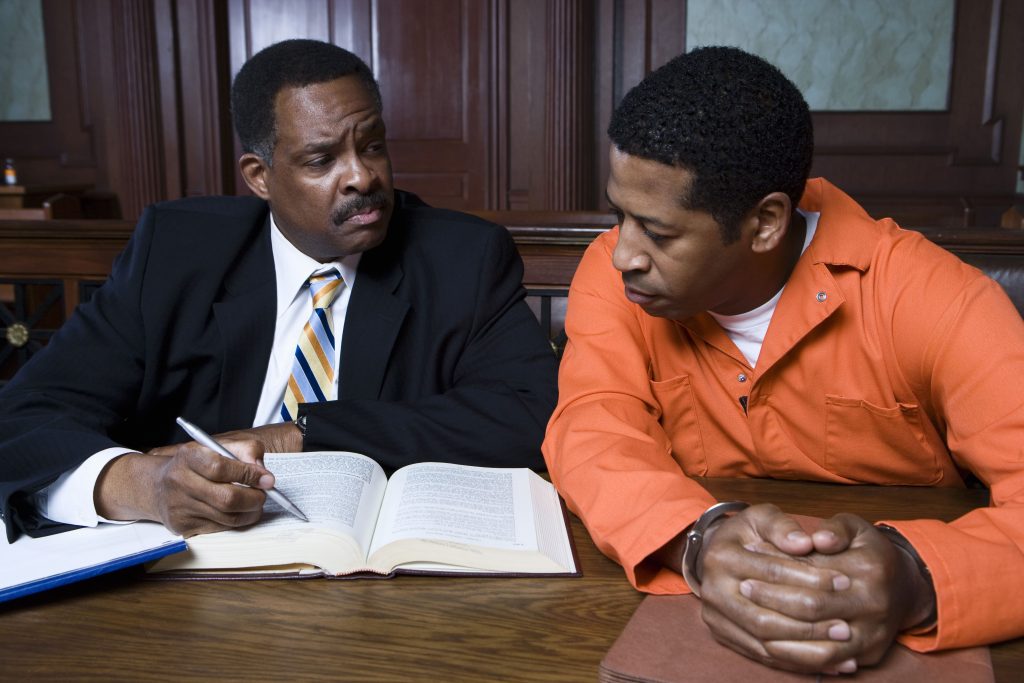Understanding Your Legal Rights: A Guide for Navigating the Criminal Justice System is a comprehensive resource that delves into the intricacies of the legal system. From learning about your fundamental rights to navigating the complexities of various criminal charges, this guide aims to equip you with the knowledge needed to make informed decisions. Whether you are in need of legal representation or seeking insights into defense strategies, trial preparations, sentencing procedures, or post-trial options, this article covers it all. Finding a reliable criminal defense lawyer near me is crucial, and understanding the processes involved can empower you in facing legal challenges effectively.

Qualities to Look for When Choosing a Criminal Defense Lawyer
When embarking on the journey of navigating the criminal justice system, one of the pivotal aspects to consider is the experience of a defense lawyer in handling cases akin to yours. Navigating the Criminal Justice System requires specialized knowledge, making prior experience essential in anticipating challenges and formulating effective defense strategies tailored to your situation.
A proven track record of success is not merely a testament to a defense lawyer’s proficiency but also instills confidence in their ability to secure favorable outcomes. For individuals Navigating the Criminal Justice System, trust in your legal representation is paramount, and a history of successful defense endeavors offers reassurance in the face of legal adversities.
Effective communication and interpersonal skills are invaluable qualities to seek in a criminal defense lawyer. Navigating the Criminal Justice System demands clear and concise exchanges of information, strategic negotiations, and empathetic interactions. Ensuring that your lawyer possesses strong communication skills can facilitate efficient collaboration and a better understanding of your legal proceedings.
An in-depth comprehension of the local criminal justice system can significantly influence the trajectory of your defense. From procedural intricacies to court dynamics, a lawyer well-versed in the nuances of the local legal framework can adeptly navigate the system, anticipate challenges, and leverage strategic advantages in your defense. Navigating the Criminal Justice System effectively mandates a lawyer’s profound understanding of the legal terrain in which your case unfolds.

Building a Strong Defense Strategy: Your Attorney’s Role
Understanding the Facts and Evidence
Your defense attorney plays a pivotal role in analyzing the evidence and facts presented against you. By thoroughly evaluating the case details, they can identify key points that may work in your favor, helping to build a robust defense.
Uncovering Weaknesses in the Prosecution’s Case
A skilled attorney will meticulously scrutinize the prosecution’s case to pinpoint any vulnerabilities or inconsistencies. This critical analysis allows them to exploit weaknesses and leverage them to your advantage during legal proceedings.
Negotiating for Favorable Outcomes
Your attorney’s expertise extends to negotiating with prosecutors for plea bargains or alternative sentencing options. They strive to secure the most favorable terms possible, aiming to minimize potential consequences and protect your rights.
Crafting a Tailored Defense Strategy
Every case is unique, requiring a custom defense strategy. Your attorney will craft a personalized plan that aligns with your specific circumstances, ensuring a well-prepared defense that addresses the intricacies of your situation effectively.

Preparing for Trial: What to Expect and How to Be Ready
Understanding what to expect during a trial is essential for navigating the criminal justice system effectively. The roles of the judge, jury, and attorneys significantly impact the proceedings. Judges ensure fairness, juries decide on the verdict, and attorneys represent their clients zealously. Being aware of these roles can help you better comprehend the trial dynamics.
Preparing for cross-examination is a key aspect of readiness for trial. Anticipate tough questions from the opposing counsel and work with your lawyer to formulate strong responses. Additionally, arranging your witnesses and evidence presentation in a clear and compelling manner can bolster the credibility of your defense. Being proactive in this preparation can significantly impact your case.
Developing effective strategies to present your defense is paramount in trial preparation. Your attorney will play a crucial role in crafting a compelling narrative that supports your innocence or minimizes potential damages. Collaborate closely with your legal team to ensure all aspects of your defense align cohesively, strengthening your position in court.
Maintaining composure and confidence throughout the trial is vital. Remaining composed under pressure and exuding confidence in your demeanor can positively influence the perception of the judge and jury. Trusting in your legal representation and staying focused on the facts of your case can help you navigate the emotional intensity of a trial with resilience and determination.

Exploring Sentencing and Post-Trial Options: Your Rights and Responsibilities
Understanding Sentencing and Influencing Factors
Sentencing in the criminal justice system involves a complex interplay of guidelines and factors that shape the outcome. Judges consider the severity of the offense, criminal history, and mitigating circumstances when determining the appropriate sentence. Understanding these elements can help you navigate the sentencing process effectively.
Exploring Alternative Sentencing Options
In some cases, alternatives to traditional incarceration, like probation or community service, may be available. These options aim to rehabilitate the offender while addressing the impact of the crime on the community. Exploring these alternatives with your attorney can help tailor a sentencing strategy that best suits your circumstances.
Knowing Your Rights to Appeal
If you believe a sentencing decision was unjust, you have the right to appeal. Understanding the process for filing an appeal is crucial. Your attorney can guide you through the steps involved, from preparing the necessary documentation to presenting your case effectively in appellate court.
Seeking Guidance on Post-Sentencing Issues
Post-sentencing, you may encounter various issues, including seeking expungement of your criminal record or restoration of your rights. Knowing your options and rights in these matters is essential. Consulting with legal experts can provide clarity on the pathways to address these post-trial concerns effectively.
Incorporating these insights into your understanding of sentencing and post-trial options can empower you to make informed decisions and navigate the criminal justice system with confidence. Remember, being aware of your rights and responsibilities is key to securing the best possible outcome in your legal journey.

Choosing the Right Criminal Defense Lawyer
When selecting a criminal defense lawyer, consider their compatibility with your personality and communication style. Effective communication is vital for a strong attorney-client relationship, ensuring clarity and understanding throughout your legal proceedings. Your lawyer should not only empathize with your situation but also communicate effectively to address your concerns promptly.
In addition to compatibility, it’s essential to discuss fees and payment arrangements upfront. Look for a lawyer whose pricing structure aligns with your financial situation. Transparent discussions regarding costs can help avoid misunderstandings later on and ensure a smooth working relationship based on mutual understanding and trust.
Moreover, evaluate the lawyer’s availability and responsiveness to your needs. A reliable defense attorney should be accessible to address your queries, provide updates on your case, and offer guidance when necessary. Prompt responses and regular communication can significantly ease your apprehensions and keep you informed throughout the legal process.
Seeking referrals and reading testimonials from previous clients can provide valuable insights into a lawyer’s reputation and track record. Reviews and recommendations offer a glimpse into the lawyer’s success rate, trustworthiness, and professionalism. Trusted referrals can help you make an informed decision when choosing a criminal defense lawyer who is well-equipped to navigate the criminal justice system effectively.

Frequently Asked Questions: Addressing Common Concerns
Understanding Common Criminal Charges and Their Handling
Navigating the Criminal Justice System involves dealing with various criminal charges like DUI, assault, theft, and drug offenses. Each charge carries unique legal implications and procedures, from investigations to court proceedings. Understanding the specifics of the charges against you is crucial for building a strong defense strategy.
Cost Considerations for Hiring a Criminal Defense Lawyer
The cost of hiring a criminal defense lawyer can vary based on factors like the attorney’s experience, the complexity of the case, and the location. On average, legal fees can range from a few thousand to tens of thousands of dollars. However, the expertise and dedication of a skilled lawyer can significantly impact the case’s outcome.
Likelihood of Achieving a Favorable Outcome in a Criminal Case
The chances of a favorable outcome in a criminal case depend on various factors, including the strength of evidence, legal representation, prior criminal record, and circumstances surrounding the offense. Working closely with an experienced criminal defense lawyer who can devise an effective defense strategy can improve the odds of a positive resolution.
Immediate Steps to Take When Arrested or Charged with a Crime
If you find yourself arrested or charged with a crime, it’s crucial to remain calm and invoke your right to legal representation. Refrain from providing any incriminating information and cooperate with law enforcement within the boundaries of the law. Contact a reputable criminal defense lawyer promptly to guide you through the legal process and protect your rights effectively.
